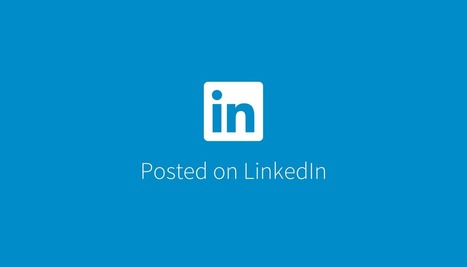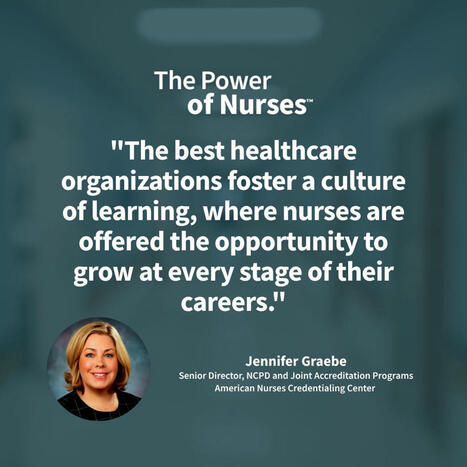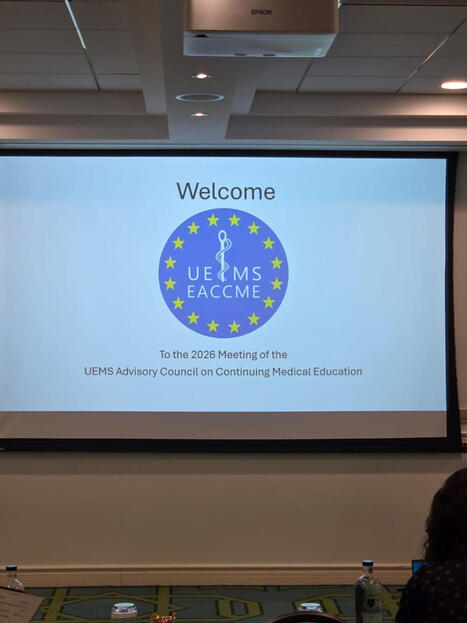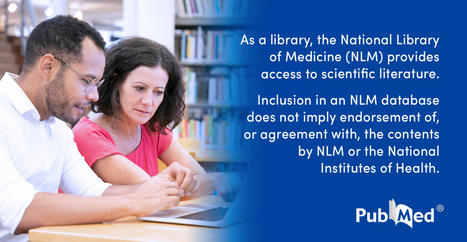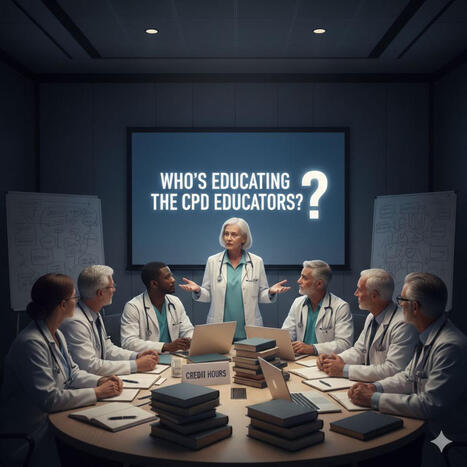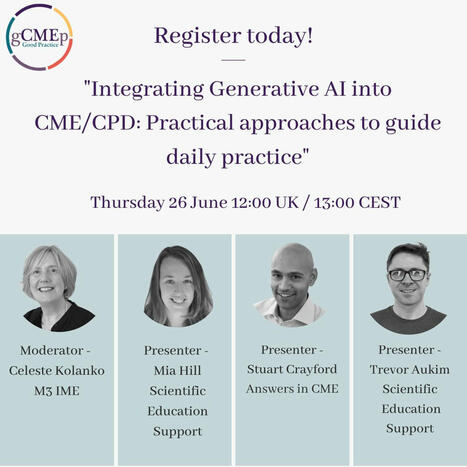Introduction Traditional learning in medical education is predominantly based on didactic in-person interactions with teachers, peers and patients. In residency training, besides didactic teaching, learning includes various formal and work-based formats including bedside rounds, out-patient clinics, resident-led seminars and research-based learning. Pandemics like the coronavirus disease 2019 (COVID-19) have caused significant disruption in this learning model as social distancing, team segregation and reorganization of workflow protocols take effect. This has necessitated several changes in education and training for students, residents and clinicians. Although the concept of e-learning has existed for several years, the COVID-19 pandemic has pushed digital education to the forefront of medical education. The severe acute respiratory syndrome (SARS) outbreak in 2003 necessitated the closure of medical schools and resulted in barring of medical students from patient contact. The education of residents and fellows was also severely affected in the impacted countries. The resultant severe disruption of medical education sensitized educators and policymakers to the fact that education of students and residents must continue in the face of such pandemics with all necessary safety measures [1,2]. Thus, innovative approaches such as video/audio recordings, mannequin simulators, virtual patients, webcasting and online chatrooms were successfully adopted by training programs during the outbreak. High stakes entrance and exit exams were also shifted to telephone-based or digital modules. The COVID-19 pandemic has already caused unprecedented social and economic devastation across the globe and continues to evolve. Healthcare systems are being severely disrupted in many countries and the future course is unpredictable [3]. As September 12, 2020, more than 28 million cases have been diagnosed worldwide with over 0.9 million deaths (Johns Hopkins tracker, https://coronavirus.jhu.edu/map.html). The impact on medical education, residency training and continuing medical education (CME) for providers is expected to last for a long and unpredictable duration in many countries. The ever-increasing globalization and high probability of future pandemics mandates measures and contingency plans to mitigate the impact of future pandemics on medical education. Impact on Oncology Care, Research, Education and Oncology Conferences: Need for Virtual Platform The rapid spread of COVID-19 has profoundly impacted cancer care globally. Cancer patients face the dual risks of acquiring the infection with a potentially higher probability of severe morbidity and mortality from COVID-19 and the adverse impact of delaying anti-cancer therapies [4]. Strict lockdowns, lack of public transport facilities and containment measures also preclude patients from access to care [5]. Measures to prevent the transmission including limiting face-to-face consults, work flow modifications, delaying surgical procedures, re-distribution of oncology workforce towards other areas for pandemic control can all result in significant delays in cancer diagnosis and treatment which will ultimately impact patient outcomes. Cancer research has suffered a significant slowdown due to the current pandemic and the impact is likely to continue for a long term [6]. Recruitment of new patients to ongoing trials have been hit due to various factors like patient reluctance, change in hospital policies into more convenient and less toxic treatment regimens and logistic reasons. Traditional teaching in oncology is predominantly based on didactic lectures, resident-led seminars, bedside clinics, out-patient interactions and conferences with the goal of developing skills and expertise for a safe and effective workplace practice. As physical distancing norms, segregation and re-organization of teams take effect, education and training activities are likely to be severely disrupted. Infection among healthcare workers, assignment of alternative clinical responsibilities for faculty and residents, cancellation of ongoing academic programs and rescheduling or cancellation of examinations are all likely to take a toll on training and education. The unprecedented situation warrants a rapid adaptation and transition towards leveraging technology to maintain education and assessment of trainees and providers. Most global and national meetings of various anti-cancer organizations were either re-scheduled, cancelled or changed to a virtual platform. Predominant among these were the annual meetings of the American Association of Cancer Research (AACR) which was rescheduled and changed to a virtual format and the American Society of Clinical Oncology (ASCO) which was revised to a virtual only format. The ASCO 2020 Annual Meeting was conducted in an entirely virtual format with practice changing data presented from May 29–31, 2020 and a virtual education program conducted between August 8–10, 2020. There was no registration fee for members and the fee for non-members was considerably less when compared to those of the previous meetings. The meeting had more than forty thousand participants and practice changing data and research findings from many trials and studies were presented. The virtual platform also introduced a feature for virtual networking including one-on-one chatting or video calls with other attendees, ASCO staff or industry representatives to recreate the onsite meeting experience. Registered participants also have the option to view the sessions or content at their convenience. Similarly, the Annual Meetings of European Society of Medical Oncology (ESMO) and the American Society of Radiation Oncology (ASTRO) will be conducted in a virtual format in 2020. These are dramatic changes for organizers, presenters and attendees who are accustomed to traditional in-person conferences. Technological advances in video-conferencing and telecommunications have made these virtual meetings feasible and accessible globally. Advantages of the virtual model include significant savings of time, money and effort especially in terms of travel, accommodation and rescheduling of clinical duties. The environmental benefits of reduced greenhouse emissions from travel and hospitality can be huge. The pandemic may thus drastically alter the way scientific meetings are conducted in the future [7,8]. Currently, various guidelines have been proposed to assist organizers as future events are being converted to virtual or hybrid (on-site and virtual) formats [9,10]. While most of the “usual business” of an onsite meeting can be shifted to the virtual platform, it would still be insufficient to recapitulate the entire experience given the missing expressions and emotions of interpersonal communication. Live presentations at these meetings represent a major avenue for professional development and career advancement for fellows and junior faculty and a virtual format may not replace this experience. The virtual formats also risk potential disruptions due to technical or connectivity issues. Current Status of E-Learning in Oncology: Modifications and Adaptations in Residency Training during Pandemics Technological innovations over the last two decades have enabled e-learning in many aspects of medical education. Complementary teaching aids such as virtual patients, video vignettes, e-learning modules, virtual three-dimensional (3D) anatomy modules and simulators are already being incorporated into medical education. These tools are highly useful aids during pandemics like the COVID-19 where they can enable uninterrupted remote learning in the face of ongoing challenges. Video-conferencing and online meeting software such as Zoom (Zoom Video Communications, San Jose, CA, USA), Webex (Cisco Webex, Milpitas, CA, USA), Skype (Skype Technologies, Palo Alto, CA, USA), GoToMeeting (LogMeIn Inc., Boston, MA, USA), Teams (Microsoft Corporation, Redmond, WA, USA), Google Meet (Google, Mountain View, CA, USA), etc., with features like screen sharing, chat and video based interactions have made didactic teaching possible in a virtual classroom format. Feedback from residents and fellows has demonstrated a high degree of satisfaction and even a preference for these online teaching tools compared to traditional classroom learning. Students have reported a higher comfort less and lower inhibition and senior intimidation to interacting remotely with faculty and peers when compared to in-person teaching. In a recent study 88% of trainees felt more comfortable raising questions through videoconferencing compared to traditional didactics [11]. Tumour boards form an important component of learning and multi-disciplinary co-ordination in oncology. As tumour board discussions also transitioned to virtual formats, feedback from stakeholders suggested increasing satisfaction and a preference to continue the virtual format beyond the pandemic. The virtual model has the advantage of enhanced participation from trainees in rotation duties, those in quarantine and allows multi-centre collaboration [12]. Experience from some centres also demonstrated that e-learning, online collaborations and working during the pandemic also provided the opportunity for residents to revamp their basic medical skills and obtain important lessons in resilience, teamwork and empathy [13]. A systematic review showed a higher or similar effectiveness for e-learning compared to traditional interventions in surgical training [14]. Similarly, a long-term review of e-learning for students and resident education in otolaryngology reported higher satisfaction and significantly enhanced objective knowledge compared to traditional learning [15]. The “flipped classroom” model of blended learning incorporates interactive online lectures with discussions, under the guidance of a mentor. The study material in lecture format (audio/video) is usually shared with the participants prior to the online class so that the actual class assumes a more interactive format shifting the instruction to a learner-centric model. These formats can make learning more self-directed, less didactic and studies have shown that it is received more enthusiastically by students [16]. A meta-analysis of 28 studies showed an overall significant effect in favor of flipped classrooms over traditional classrooms for health professions education [17]. It also showed that incorporation of a quiz at the beginning of the class made the learning more effective. For radiation oncology residents, better utilisation and practising on virtual environments for contouring and radiotherapy planning and evaluation can be very useful considering the shift in their work load. The ASTRO EduCase, Radiotherap-e (eIntegrity e-Learning, Hertfordshire, UK), eContour, FALCON (Fellowship in Anatomic Delineation and Contouring) by the European Society for Radiotherapy and Oncology, etc., are a few examples of such virtual learning platform. Highly Interactive Technology-Based Solutions in Medical Education With advances in telecommunications, smartphones, point of care tools, decision making apps, mobile-based medical calculators are now in common usage by residents, fellows and providers. These devices provide real-time point of care information in bite-sized portions that can support learning and clinical care [18,19]. Various apps for cancer diagnosis, clinical decision support, symptom assessment, pain management, chemotherapy planning, dose calculations, drug interactions and research data collection are currently in use in oncology clinics [20]. Virtual reality (VR) simulation refers to the creation of scenarios as complex, computer-generated images. The virtual display simulates the real world and user interactions within that simulated (virtual) world. VR is being increasingly incorporated into medical education especially training in surgical and procedural skills and can prove to be a highly useful tool for learning complex procedures in cancer surgery and robotic assisted procedures [21]. Use of high-fidelity manikins with many interactive features including display of physical signs is also being adopted increasingly in medical and surgical training [22]. Wearable technologies like Google Glass can provide real-time, hands-free dynamic learning in the clinic and on-the-go [23,24]. Online game-based learning offers another engaging and interactive format to enhance learning objectives and has been effectively used to improve clinical and surgical skills. It focuses on problem solving over memorizing content [25,26]. Advantages of E-Learning in Oncology A virtual learning platform can tremendously impact education of students and residents both during the pandemic and beyond as it broadens the horizons of continued education, interactive learning and collaboration. It will be extremely useful for faculty and trainees in any situation where physical presence is not feasible and enable learning from otherwise difficult to access experts. It can serve as a cost-effective solution for low resource settings. Digital solutions allow recording, cloud-based storage and on-demand retrieval [27]. Online learning offers the flexibility to adapt the format and content to make education more learner-centric. It makes learning active rather than passive and offers the possibility of multi-institute and even global collaborations including sharing of educational resources among organizations [28]. Studies show that “interactivity” in education is highly valued by trainees. An online learning module which offers the ability to meaningfully interact with faculty and peers and the opportunity to obtain ongoing constructive feedback is highly desirable and sustainable [29]. Pre and post session quizzes can effectively promote learner engagement and assess learning outcomes [18]. Team‐based learning is an interactive teaching method that is learner centred and instructor directed. Post-lecture discussions with spaced repetitions of content in an easily digestible format can be highly effective [30]. Debate style teaching can be highly engaging for participants while providing clarity on controversial topics and multiple perspectives on clinical problems [31]. Most oncology conferences include debate-based sessions and post session audience polls which promote active participation and are effective learning opportunities. Real-time polls, chats and break-out group discussions can be highly engaging and serve to reinforce concepts. Scheduling and tracking apps can assist faculty and trainees in planning their routines and assessing their progress. Technological solutions can also be used for ongoing mentoring of trainees and fellows and providing mental health services for physicians and trainees. E-learning has the distinct potential to revolutionize education in remote areas and community-based practices. Online assessments, practice assignments and simulation of procedures can ensure uninterrupted learning. Social media can be a powerful tool for the current and future generations to maintain ongoing education [32,33]. Digital technology can also facilitate research-based education for trainees by utilizing telemedicine to monitor patients on research protocols and video-conferencing for data monitoring and committee meetings. Online platform was successfully utilised by many academic institutes for final exit exams for the oncology residents [34]. Transitioning Towards a New Era in Residency Training and Provider Education It is important to ensure that all potential users are familiarized with how to optimally utilize the online application. All users should also learn the basic etiquette for online conferencing including muting their microphones when not speaking, refrain from interrupting another speaker and optimal use of video and background blur for a more interactive experience. Users should also learn how to effectively moderate a session and troubleshoot minor technical issues [35]. Kotter’s Change Management Model (https://www.kotterinc.com/8-steps-process-for-leading-change/) offers insights into transitioning into, adopting and incorporating a new paradigm into routine practice [28]. A robust and sustainable modification to educational approaches is the need of the hour. Academic medical centers should prepare themselves to recognize new threats that can potentially disrupt learning. A proactive response is required that incorporates a risk-adapted approach with restructuring of academic programs to technology enabled formats without compromising continuity and quality [36]. Telemedicine can be effectively utilized for various aspects of cancer care and education [37]. Challenges of E-Learning Major challenges include availability of infrastructure and willingness of the stakeholders to adopt the technology. Lack of time, technological skills and confidence can be a significant deterrent for teaching faculty [38,39]. E-learning can also be challenging in resource limited settings [40]. A negative attitude towards change and poor institutional support can preclude a successful implementation [41]. It is therefore imperative that these issues are addressed to effectively transition towards technology based learning [42]. Emotional engagement with the audience can be a challenge as facial expressions, body language and visual cues which enable real-time interpretation of participant engagement and understanding may be lacking. Besides the lack of a friendly arm and psychological support during these times of isolation and anxiety can negatively impact learning objectives. It has also been shown that distractions and disruptions can be more frequent during online learning compared to traditional classroom teaching [43,44]. Fatigue of trainees could also become a significant barrier to effective learning especially when they’re expected to fulfil their increased work responsibilities along with completing their learning tasks. It is also undeniable that online learning cannot replace the requirement for procedural and experiential learning although simulation [45], virtual reality, tele-consults and virtual patients can circumvent these challenges to some extent. Future Directions A traditional face to face teaching and learning method is undoubtedly irreplaceable. But the current pandemic has steered residency training towards technologically driven learning and will provide direction and information on best practices to maintain and enhance training through these difficult times and beyond. It has provided the opportunity to leverage technology and incorporate concepts of pedagogy to the training of residents and physicians. Academic Institutes and professional societies should now focus on creating a structured and focused content to design pedagogically informed online courses which are interactive and learner-centric. The crisis can provide an impetus towards multi-institute and global collaboration in oncology training [28,46]. Oncology societies like ASCO and ESMO, with their large international membership and a vast repertoire of educational resources, can take the lead in initiating and facilitating innovative approaches in learning. Over the past decade ASCO has greatly expanded its educational resources and is continuously working towards enhancing the learning experience for its members [47]. The ASCO eLearning catalogue features an increasing suite of educational resources designed to address learning needs of oncology fellows and providers (https://elearning.asco.org/). The ESMO also provides a vast variety of educational content through the OncologyPRO section on its website (https://oncologypro.esmo.org). Both these professional societies also have vast amount of COVID-19 related resources which are continuously updated to provide the latest updated information on oncology care during the pandemic [48,49]. Future educational initiatives should leverage advances in knowledge and technology to create innovative solutions based on current concepts in cognitive learning theory. It is important to promote student engagement and minimize distraction. Interactivity and corrective feedback should be incorporated. An ongoing mechanism to access impact and effectiveness of the system will inform improvement to a dynamic and flexible system. The module should analyse learning outcomes utilizing tools for formative and summative assessments [34]. Academic institutes need to systematically plan and organize initiatives for blended learning. Digital platforms can also be effectively utilized for objective structured teaching examination (OSTE) for a transparent assessment of teaching faculty and support career and professional development initiatives [50]. Conclusion E-learning ensures a safe environment to maintain education during a pandemic. The enhanced audio-visual tools can be effectively utilized to engage learners, promote interactivity, provide feedback and assess progress. A dynamic and flexible model ensures active learning with individually tailored instruction in easily digestible bits. An effective system should also incorporate spaced repetition, practice assignments and objective assessment. Stakeholders should work towards standardizing e-learning into routine educational modules and create a system of credibility and accountability. The long-term social, environmental and professional advantages of adopting e-learning at the Institute and global level are potentially enormous. Moving forward, technology enabled learning is well poised to become an integral part of education in oncology.

|
Scooped by
Gilbert C FAURE
onto CME-CPD December 20, 2020 2:04 PM
|
No comment yet.
Sign up to comment




 Your new post is loading...
Your new post is loading...
